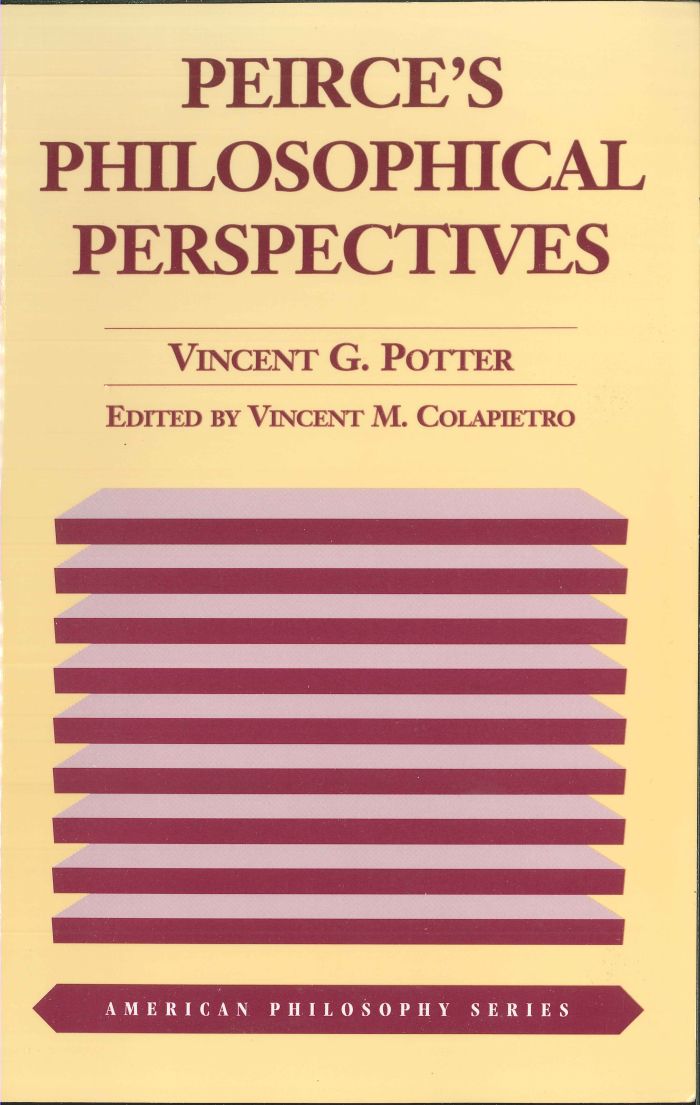Peirce's Philosophical Perspectives

This book can be opened with

This collection focuses primarily on Peirce’s realism, pragmatism, and theism, with attention to his tychism and synechism.
Peirce's Philosophical Perspectives is available from the publisher on an open-access basis.
This collection of Father Potter's scholarly essays on Peirce builds on his groundbreaking Charles S. Peirce: On Norms and Ideals (CH, Dec'68). These essays run counter to many selective readings of Peirce, including those encouraged by his friend and champion, William James. The influence of Bernard Lonergan and John E. Smith on Potter is clear throughout. Potter brought several distinctive assets to his scholarship. First, his appreciation and understanding of medieval philosophy enriched his discussion of John Duns Scotus's influence on Peirce's "scholastic realism." Second, Potter's background in the history of science and mathematics generated careful discussions of Peirce's analysis of probability in physics and of the continuum in mathematics. Finally, Potter's knowledge of theology yielded fruitful explorations of Peirce's argument of God's reality as "vaguely like a man." Potter began the editing of this collection; Vincent Colapietro, a colleague, completed the task. Colapietro's introductory essay provides a useful orientation. This is not the first book about Peirce to read. However, it belongs in any library with more than a few introductory works on Peirce. The lack of an index is frustrating. Suitable for upper-division undergraduates as well as graduate students, faculty, and professionals.——Choice
Please click the link below to download the Open Access version of this book.

